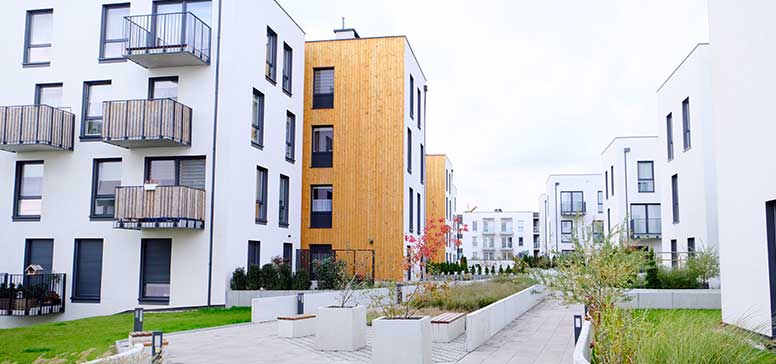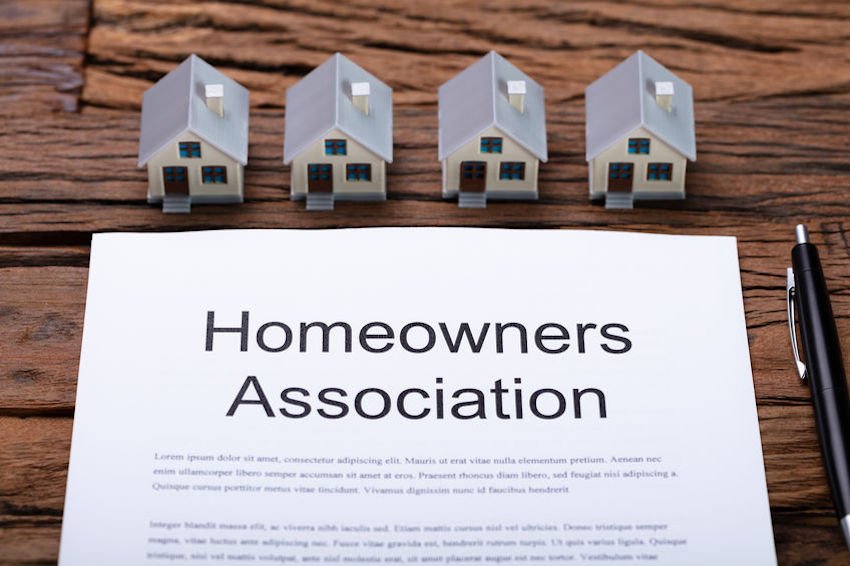The Duty of an HOA in Establishing and Enforcing Area Standards for Citizens
The role of a Homeowners Association (HOA) in developing and enforcing community standards is basic to keeping a orderly and cohesive household setting. By formulating clear rules that control facets such as building upkeep and neighborhood conduct, the HOA not only establishes standards for homeowners yet additionally promotes a feeling of belonging and accountability.
Comprehending Property Owners Associations
Homeowners associations (HOAs) function as regulating bodies for domestic communities, playing an important function in maintaining building values and promoting a feeling of area. Generally created by developers, HOAs are made up of homeowners within a designated area who choose a board to supervise the association's activities. The main functions of an HOA consist of implementing neighborhood policies, taking care of common locations, and arranging area occasions.
HOAs run under a collection of governing papers, consisting of constraints, conditions, and covenants (CC&R s), which lay out the rights and duties of home owners. These guidelines intend to make sure that buildings are maintained to a particular requirement, thereby shielding the aesthetic allure and general value of the community. In addition, HOAs typically collect dues from house owners to fund upkeep, landscape design, and various other area services.
The existence of an HOA can dramatically affect the living experience within a community (hoa condo). While some residents appreciate the structured atmosphere and services provided, others may locate specific policies limiting. Stabilizing the rate of interests of all property owners is important for an HOA to function successfully, guaranteeing that it offers its designated function of boosting community living while valuing private homeowner civil liberties
Establishing Community Standards

To start, an HOA needs to carry out surveys or convene that allow residents to voice their worries and tips. This participatory procedure fosters a sense of possession and boosts conformity. Next off, the HOA board need to examine the responses to recognize usual themes and top priorities that require formal inclusion in the guidelines.
It is also important to ensure that the guidelines are clear, succinct, and quickly comprehended. Obscurities can bring about misconceptions and conflicts, undermining the function of the guidelines. Furthermore, the standards should be comprehensive, covering numerous elements of area living, including residential or commercial property maintenance, sound levels, and usage of usual areas.
Enforcement of Regulations
Efficient enforcement of neighborhood regulations is crucial for keeping order and ensuring that all locals comply with the developed guidelines. An HOA has to execute an organized technique to impose these policies, which usually entails a combination of monitoring, communication, and charges for non-compliance.
First, routine examinations and community patrols can help recognize violations, making sure that regulations are constantly applied across the community. This positive tracking allows the HOA to deal with concerns before they intensify, fostering a sense of accountability among citizens.
2nd, clear interaction is vital. Homeowners should be notified of the guidelines and the treatments for reporting offenses. An open line of interaction urges homeowners to voice issues and seek information on guidelines, which can enhance conformity.

Lastly, when offenses happen, the HOA must impose effects as outlined in the regulating records. This might consist of cautioning letters, penalties, or, in severe instances, lawsuit. It is very important that penalties are used rather and constantly to keep count on within the area. By efficiently imposing regulations, an HOA can grow a harmonious living atmosphere that reflects the collective worths of its homeowners.
Benefits of HOA Regulations
Many advantages emerge from the execution of HOA regulations, which serve to enhance the high quality of life within a community. One primary benefit is the upkeep of home values. By imposing standards for appearances and maintenance, HOAs make certain that homes Recommended Reading and usual locations remain appealing, cultivating a desirable living environment that can bring about increased residential or commercial property values with time.
Furthermore, HOA laws promote uniformity and harmony within the neighborhood. This comprehensibility in layout and maintenance aids to develop a sense of belonging amongst residents, adding to neighborhood satisfaction and a positive ambience. In addition, developed standards facilitate dispute resolution amongst next-door neighbors by providing clear expectations and methods for habits, thereby decreasing disputes.
One more substantial benefit is the provision of Clicking Here common facilities and solutions. Numerous HOAs take care of area centers such as parks, clubhouses, and swimming pools, which enhance leisure chances for residents. These features not only enhance the lifestyle yet also urge social interaction.
Eventually, the regulations established forth by an HOA grow an efficient, harmonious neighborhood, making certain that residents delight in a high criterion of living while fostering a supportive setting for all property owners.
Common Obstacles Faced by HOAs
Amidst the advantages that homeowners associations (HOAs) can provide, they additionally encounter a selection of obstacles that can prevent their performance. Several house owners might not take part in conferences or area tasks, leading to a separate between the HOA board and locals.
An additional difficulty is the enforcement of policies and regulations. Disputes can emerge when locals really feel that enforcement is irregular or prejudiced, potentially causing problems within the neighborhood. Furthermore, HOAs frequently face financial restrictions, which can limit their capacity to keep common areas or fund neighborhood projects. This can develop frustration among citizens that expect high requirements of upkeep.
In addition, browsing legal complexities can be daunting for HOAs. They should guarantee conformity with state laws while handling their very own regulating documents, which can be a resource of confusion. this website Changing demographics and advancing community needs need HOAs to adjust their guidelines, typically fulfilling resistance from long-standing residents who are accustomed to typical norms. Dealing with these difficulties is critical for promoting a harmonious and successful neighborhood.
Final Thought

By developing clear regulations that govern facets such as property maintenance and neighborhood conduct, the HOA not only sets criteria for locals however also cultivates a feeling of belonging and accountability.Homeowners associations (HOAs) offer as governing bodies for residential neighborhoods, playing a vital duty in maintaining residential or commercial property values and promoting a sense of neighborhood. Several property owners might not participate in meetings or community tasks, leading to a disconnect between the HOA board and locals. Advancing and altering demographics community needs need HOAs to adjust their standards, often satisfying resistance from enduring residents that are accustomed to standard standards. With the growth of clear policies and constant enforcement, HOAs advertise residential or commercial property maintenance, area satisfaction, and count on amongst locals.